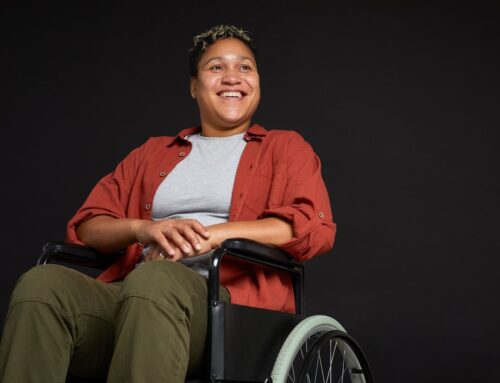
Bowel Care and Pediatric Patients
Mild constipation is fairly common in children, but research has shown a trend towards more chronic incidence of this condition in pediatric patients.
Pediatric constipation is the cause of 3% of visits to a pediatrician, and 25% of visits to a pediatric gastroenterologist1
, however, it often goes unrecognized by parents and unreported to a medical professional.
“The reality is that too many children are either not treated at all, start treatment too late or are treated inadequately, leading to persistent, severe and chronic constipation,” says Maria Oliva-Hemker MD, director of pediatric gastroenterology and nutrition at Johns Hopkins Children’s Center in Baltimore, MD.
While the definition of a ‘normal’ bowel pattern is different for every child, constipation in pediatric patients is commonly defined as having fewer than three bowel movements a week for three, not necessarily consecutive, months in a year. Symptoms include:
- abdominal bloating
- feeling of fullness
- straining at the toilet
- lumpy or hard stools
- small pellet-like stools accompanied by incomplete emptying of the bowel.
Pediatric bowel health can be negatively impacted several ways, including:
- Diet low in fiber
- Insufficient fluid intake
- Disruption to regular routine
- Stool withholding
- Stress
- Toilet Training
- Child’s lack of awareness that they need to have a bowel movement (playing or distracted)
- Recent illness or hospitalization
- Low activity levels and/or reduced mobility
Diagnosing and Managing Pediatric Constipation
When assessing a pediatric patient’s history as it pertains to constipation, several factors are important, including:
- Character of stool (consistency, caliber, volume, frequency of bowel movements, and frequency of incontinence
- Age of onset
- Birth history/birth weight
- Current diet
- Stressors (social, familial, academic)
- Passage of meconium (can be a sign of Hirschsprung’s Disease)
- Tolerance of early feedings
- Ease of toilet training
- Family history (in particular Cystic Fibrosis, Hypothyroidism, myopathies, Hirschsprung’s Disease
Managing constipation in pediatric patients includes both medical management and behavior modification.
Medical management typically begins after the bowel is completely evacuated using polyethylene glycol or magnesium citrate.
DocuSol® Kids mini-enemas or suppositories help clear impacted stool. Once the bowel is evacuated, maintenance with stool softeners may be required. Stimulant laxatives (senna, bisacodyl) can be used occasionally but only in conjunction with behavior modification.
Behavior modification often includes:
- Change in dietary habits to ensure adequate nutrition and appropriate daily fiber intake
- Consistent toileting routine
- Daily physical activity
- Adequate daily hydration
- Stress reduction
Bowel Care for Pediatric Patients with a Disability
While constipation is a relatively common problem for children with disabilities, the use of an effective bowel management program makes it possible for children to achieve optimum wellness and independence.
Disabilities that cause pediatric patients to be more susceptible to bowel problems include:
- Spinal cord injury (physical immobility)
- Neurological injury
- Muscle weakness
- Disease (i.e. Down Syndrome, Multiple Sclerosis, Cerebral Palsy, Parkinson’s Disease)
- Spina Bifida
Bowel Assessment for Pediatric Patients with a Disability
Initial assessment of pediatric patients with bowel conditions should include the following:
- Full history of stool frequency and consistency
- Any evidence of soiling
- Presence of pain or discomfort when passing stool
- Medication review (including over-the-counter and prescribed laxative use)
- Presence of a dilated colon
- Evidence of impacted stool
- Presence of an enlarged rectum
An abdominal X-ray and/or an abdominal radiograph may help with the assessment of bowel problems. Less common methods such as anorectal manometry or endoanal sonography, may also be useful.
Pediatric Patients with No Soiling and an Enlarged Rectum
An enlarged rectum typically causes pain and/or discomfort during defecation. A routine bowel program minimizes patient distress about passing stool and a stool softener may decrease pain and discomfort. For rectal overloading, the use of an enema may also be effective.
Pediatric Patients with Soiling and No Enlarged Rectum
For pediatric patients who have evidence of soiling but who do not have an enlarged rectum, bowel management typically involves a combination of adding fiber to their diet, ensuring the child is receiving adequate fluid intake, and stool softeners.
To achieve the best results, close follow-ups that include the use of a bowel habit diary allows physicians and caretakers to correctly assess the child’s progress and make appropriate adjustments.
About DocuSol® Kids Mini-Enemas
DocuSol® Kids, a first-of-its-kind formula, does not. The non-irritating DocuSol® formulation functions as a stool-softening, hyperosmotic laxative by drawing water into the bowel from surrounding body tissues, replicating a normal bowel stimulus. This unique formulation provides children ages 2–12 fast, predictable relief of constipation.
DocuSol® Kids was designed for easy use at home. The DocuSol® Kids tube is designed to offer a minimally invasive, soft, and flexible tip, avoiding any scratching or irritation to the skin. Just a 5-milliliter tube delivering 100 mg of docusate sodium, the medication provides fast relief in just a few, easy steps! See package for instructions.
Submit a form to request product samples and information on our website here.
Request an in-service for your facility.
Disclaimer: The material contained is for reference purposes only. Quest Healthcare, A Division of Quest Products, LLC, does not assume responsibility for patient care. Consult a physician prior to use. Copyright 2021 Quest Healthcare, A Division of Quest Products, LLC.
Sources:
- Management of Constipation in Children with Disabilities. Mamoun A Elawad MRCP; Peter B Sullivan MA MD FRCP FRCPCH, University of Oxford, Department of Paediatrics, John Radcliffe Hospital.
- Bladder and Bowel Control in Children with Cerebral Palsy: Case-Control Study, Mustafa Ozturk, Faruk Oktem, Nesimi Kisioglu, Mustafa Demirci, Irfan Altuntas, Suleyman Kutluhan, Malik Dogan
- Bowel Care Guidelines (nsw.gov.au)
- 1Some information in this article is based on a presentation given by Dr. Rina Sanghavi, M.B., B.S., M.D., F.A.A.P., and a pediatric gastroenterologist at Dallas Children’s Medical Center and Johns Hopkins Center Focuses on Child Constipation by Cclark@healthleadersmedia.com October 26, 2010







